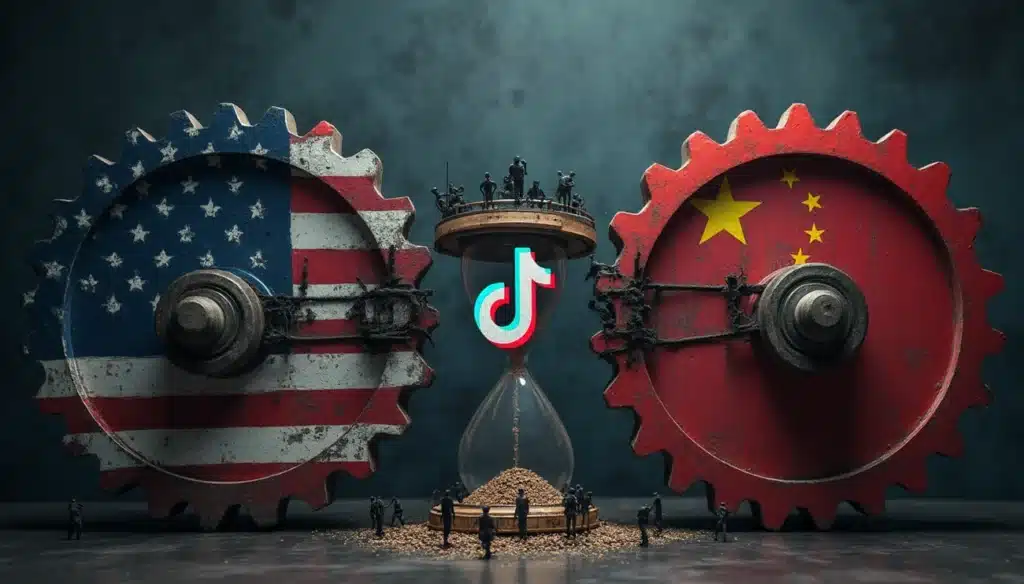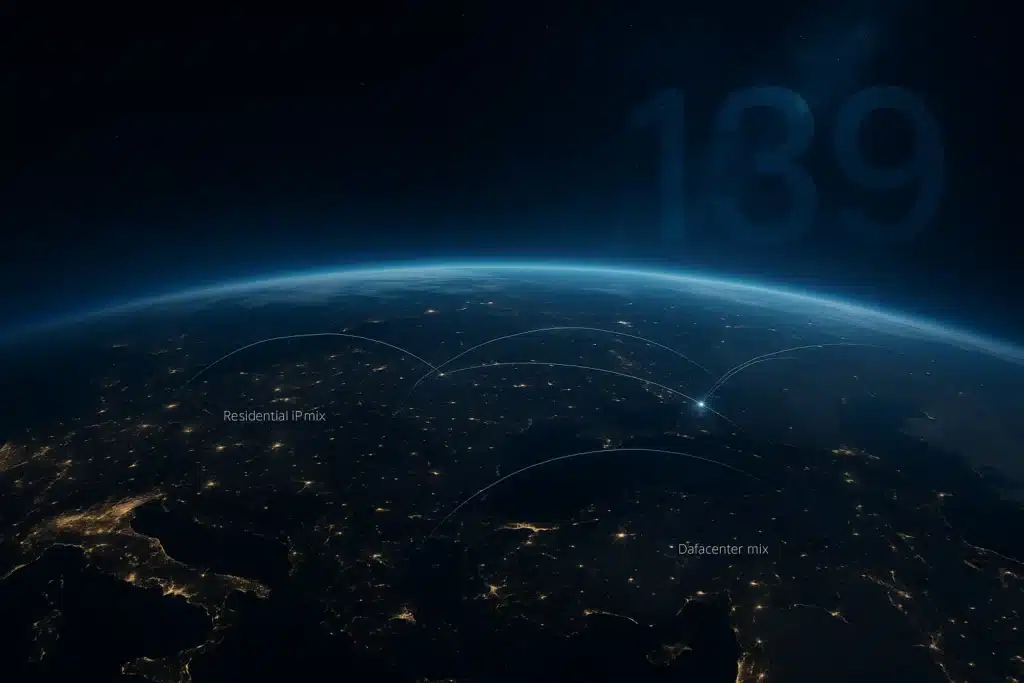President Donald Trump has signed his third executive order that delays the US TikTok ban, which affects 170 million American users. The controversial measure now sits in limbo. The Protecting Americans from Foreign Adversary Controlled Applications Act (PAFACA) initially set the deadline for January 19, 2025, but TikTok will stay operational in the United States for at least three more months.
The deadline now moves to September, which gives ByteDance, TikTok’s Chinese parent company, more time to sell the platform. ByteDance’s refusal to sell TikTok before the PAFACA deadline triggered the original ban, raising national security concerns. TikTok users have started learning about options for a mass migration to other platforms if the ban takes effect. The ban law still exists, but this third extension suggests ongoing backdoor negotiations between politicians and business leaders who are working toward a solution.
Trump delays US TikTok ban again with 90-day extension
Table of Contents
ToggleMy decision on TikTok will be made in the not too distant future, but I must have time to review the situation.
Source: Donald J. Trump, 45th President of the United States
President Donald Trump signed an executive order on Thursday that extends the deadline for TikTok’s Chinese parent company, ByteDance, to sell its U.S. assets. This marks his third extension since taking office in January. The new deadline moves to September 17, 2025, giving ByteDance 90 more days to direct the complex sale process.
Executive order pushes deadline to September 17
A bipartisan law passed in April 2024, known as the Protecting Americans from Foreign Adversary Controlled Applications Act, required TikTok’s sale or shutdown. ByteDance needed to stop U.S. operations by January 19 unless it sold TikTok’s U.S. assets or showed progress toward a sale. The Supreme Court backed this law in January, and TikTok went offline for about 14 hours right after.
Trump announced on his Truth Social platform the executive order extending the deadline for the TikTok closing for 90 days.
We will work over the next three months to complete the sale so Americans can use TikTok knowing their data stays secure.
Source: Karoline Leavitt, White House Press Secretary
Trump cites national security and youth support
Trump wants to keep TikTok running in the United States. This stance differs from his first term, when he tried to ban the platform through executive orders that courts later blocked.
The president recognizes TikTok’s appeal to younger voters who helped him in the 2024 presidential election, though most young voters actually supported his opponent.
TikTok thanks Trump and continues U.S. operations
TikTok responded with gratitude. The company continues to work with Vice President JD Vance to resolve the situation.
Trump seems optimistic about Chinese approval for a deal, saying “I think President Xi will end up approving it”. The path to a sale remains complex because China hesitates to approve any deal, especially after new U.S. tariffs.
Also read: Why You Should Use a Proxy for TikTok
What’s going on with TikTok’s legal status in the U.S.?
A fierce legal battle rages over TikTok’s American future. The conflict stems from legislation passed this year with strong support from both parties. This situation has created unprecedented tension between presidential powers and Congress’s directives about foreign-owned apps.
Congress passed divest-or-ban law in 2024
Congress approved the Protecting Americans from Foreign Adversary Controlled Applications Act (PAFACA) in April 2024. The law targeted TikTok’s Chinese ownership directly. ByteDance received about nine months to sell TikTok’s U.S. operations or face a nationwide ban. The legislation demanded:
- U.S. user data must be completely separated from ByteDance’s control
- TikTok’s U.S. assets must be sold to an American company
- Apps stores must remove TikTok if requirements weren’t met by January 19, 2025
Democrats and Republicans rarely agree, but this law passed with overwhelming support in both chambers. Their shared concern about Chinese technology brought them together.
Supreme Court affirms constitutionality of the law
ByteDance rushed to federal court after PAFACA passed. They claimed it violated First Amendment rights. The Supreme Court upheld the law’s constitutionality in a landmark 6-3 decision in May 2025. Chief Justice Roberts wrote the majority opinion. He determined that national security concerns outweighed free speech considerations in this case.
Congress provided substantial evidence that ByteDance’s ties to the Chinese government presented legitimate national security concerns that justify these restrictions.
Trump’s executive orders challenge enforcement
President Trump signed the bill during his first term, but his actions have weakened PAFACA’s implementation. His administration issued three extensions in a row—first in January, then March, and now enforcement waits until September 17.
This creates a strange legal situation. The law remains valid, but executive actions block its enforcement. Legal experts say this tests the limits between Congress’s authority and executive power in national security matters.
ByteDance won’t budge on selling its algorithm while the White House keeps talking to potential buyers. This standoff leaves everyone wondering what happens next.
Also read: Bypassing the Chinese Firewall Without a Proxy: CacheBrowser’s Solution
Who might buy TikTok and what’s holding up the deal?
Major tech companies want to buy TikTok’s U.S. operations as the sale deadline gets closer. The deal faces many roadblocks from different sides. Nobody knows if any agreement can happen before September.
Oracle, Amazon, and other bidders show interest
Oracle leads the race to acquire TikTok after working with ByteDance during Trump’s first term. The company has brought together investors ready to pay approximately $30 billion for TikTok’s U.S. business. Amazon joined the talks because it sees value in combining TikTok with its cloud services and digital media.
Other companies looking to buy include:
- Microsoft, which tried to buy TikTok in 2020
- Google parent Alphabet, which wants to grow its social media presence
- Private equity firms like Blackstone and KKR, who might team up with tech companies
China blocks deal after U.S. imposes tariffs
The Chinese government stopped any possible sale with new export control rules. These rules came in June 2025 and ban ByteDance from sharing its algorithm technology without government approval. This happened right after President Trump added 25% more tariffs on Chinese imports.
“Beijing views the forced divestiture as economic coercion,” a Chinese Commerce Ministry spokesperson said last week. “No sale will be approved while these punitive tariffs remain in place.”
ByteDance insists on retaining algorithm control
ByteDance leaders say TikTok’s recommendation algorithm—the tech that makes the app so addictive—can’t be separated from their main systems. This goes against what the U.S. wants.
The algorithm represents years of research and billions in investment. We cannot simply transfer this intellectual property.
Source: Liang Rubo, CEO at ByteDance
ByteDance suggested creating a U.S.-based data security team with American leaders while keeping control of the core technology. CFIUS officials rejected this idea because it doesn’t fix national security issues.
Experts value TikTok between $90 and $100 billion worldwide. U.S. operations make up about 40% of that value. But buyers say the platform would be worth much less without the algorithm. This creates a gap between what sellers expect and what buyers will pay.
Also read: DeepSeek AI’s Privacy Violations in Data Collection
Is TikTok getting banned or just stuck in limbo?
TikTok’s future in the United States remains uncertain. The popular social media platform operates in a strange limbo while users and industry watchers wonder what might happen next.
App removed and restored from app stores
The divest-or-ban law took effect on January 19, 2025, and TikTok went dark for about 12 hours. Users who opened the app saw a message that read, “A law banning TikTok has been enacted in the U.S.” and “Unfortunately, that means you can’t use TikTok for now”. Apple and Google pulled the app from their stores to comply with the law, which set a $5,000 fine per U.S. download.
Trump stepped in, and TikTok came back online around 1 p.m. EST on January 19. Users received a “Welcome back!” message upon return. The app stayed off official stores until February 13. Apple and Google made it available again after the Attorney General assured them they wouldn’t face penalties.
Users sideload APKs and migrate to RedNote
TikTok announced a solution for Android users in February. Users could now download the app straight from TikTok.com/download. This sideloading option lets people install both regular TikTok and TikTok Lite versions as Android Package Kit (APK) files. Many Americans switched to RedNote (China’s Xiaohongshu) during this time. The app quickly became the most downloaded free app on Apple’s App Store.
RedNote boasts 300 million monthly active users. The platform became a haven for TikTok refugees who joined as a protest against the ban.
Analysts say ban may never be enforced
TikTok’s traffic has bounced back significantly. Current DNS traffic sits just 10% below pre-ban levels. Security analysts have pointed out something intriguing: the law that threatens TikTok could also affect other Chinese-owned apps like RedNote.
ByteDance still has access to TikTok’s user data during this uncertain period. This raises concerns that all American user information might end up in China if the app faces a permanent ban.
Also read: Why Social Media Is Important for Businesses
What happens next for TikTok and its users?
TikTok sits in a strange spot now, under legal threat but running just fine. The app disappeared from stores for a bit this year but came back and works normally while deals get hammered out behind closed doors. Nobody knows if September will bring answers or just another delay.
Users can keep scrolling through their feeds for now. But their favorite app’s future depends more on high-stakes talks between Washington and Beijing than the latest viral dance craze.
How useful was this post?
Click on a star to rate it!
Average rating 0 / 5. Vote count: 0
No votes so far! Be the first to rate this post.
Tell Us More!
Let us improve this post!
Tell us how we can improve this post?


